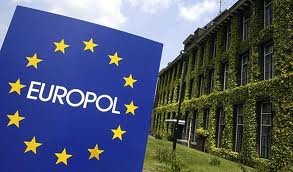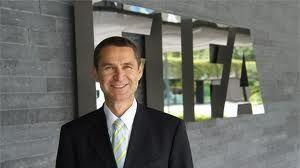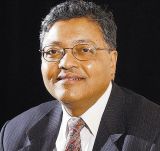The story of match fixing in football is very like the story of Lance Armstrong. The world knew, with the singular exception of UCI, cycling’s world body, that Armstrong was a cheat. The problem was finding enough evidence to prove that he had doped his way to victory. And once the Americans had seen the light it was always a matter of time.
Of course even now the UCI refuses to accept responsibility for the fact that Armstrong cheated right under their noses. But that is because as Dick Pound, the man who set up the World Anti Doping Agency and was the American’s greatest scourge, told me, the UCI is behaving like an alcoholic refusing to believe it has a drink problem. And in any event it does not matter because the UCI is now such a discredited organisation that not many care what it thinks or does.
And like Armstrong the world has long known that match fixing goes on in football. But unlike Armstrong, unmasked by one devastating report of the United States Anti Doping Agency, football’s match fixers cannot be caught just because Europol has gone public over the extent of the crime. For the full truth of football match fixing to be revealed and the scourge to be eliminated we will need to deal with conflicting cultural and political problems.
What we have here is a classic case of the great perils of modern sporting globalisation. Solving it will require a lot more work than tearing away the mask of purity and glory that Armstrong flaunted for so long.
Indeed, the way Europol exploded its bombshell of Monday, revealing the extent of match fixing, with some 700 matches in Europe involved, underlines why this a world removed from the USADA investigation that nailed Armstrong. Europol’s press conference looked more a cry of help than positive sign it can tackle the problem.

For a start the announcement took everyone by surprise, both footballing authorities and governments including the British. Then there was what Europol said which emphasised the mountain the organisation knows it has to climb if the ring leaders of match fixing are to be caught.
The crucial part of its statement read, “The ringleaders are of Asian origin, working closely together with European facilitators,” adding that “Russian-speaking and other criminal gangs were also involved.” And this is where the problem arises and leads to the dismal conclusion that compared to the unmasking of Armstrong, eradicating match fixing is a Herculean, if not impossible, task.
My conclusion may seem unnecessarily pessimistic. But to begin with consider the reaction by FIFA to the Europol statement. It came in the person of Ralf Mutschke (pictured), director of security who said: “The support of law enforcement bodies, legal investigations, and ultimately tougher sanctions are required, as currently there is low risk and high gain potential for the fixers.”
On the face of it this is the sort of statement sporting authorities make. After spending their lives pretending that they are the masters of their sport, when they face a real problem they immediately put their hands up and plead helplessness. Then it is all down to the wider problems of society, how sports bodies are at the end of the day voluntary bodies with limited powers and they cannot go into areas where the judicial authorities can.
But what Mutshckle’s statement also underlined is that to really solve the problem it is not enough for European police action to be co-ordinated. We need to go much beyond that and have co-ordinated police and judicial action in the countries which are at the centre of this fixing, in order words Singapore and south Asia. And that is where the rub lies.
 For unlike much of Europe, and in particular Britain, gambling in these south Asian countries is almost wholly illegal apart from betting at race tracks on horses. This is not quite as weird as it sounds. That used to be the position in this country prior to 1960 when betting shops were legalised.
For unlike much of Europe, and in particular Britain, gambling in these south Asian countries is almost wholly illegal apart from betting at race tracks on horses. This is not quite as weird as it sounds. That used to be the position in this country prior to 1960 when betting shops were legalised.
So the Asian ring leaders that Europol is taking about are operating in a climate where what would be legal in Britain, like visiting a betting job, is illegal. This result of pushing gambling, any form of gambling, into the hands of the underworld has meant that these countries have recreated what America did during prohibition. Then what could be a pleasurable leisure activity was declared illegal. But with people keen to pursue it, the result was the rise of a criminal underworld.
This south Asian football underworld has probably always existed but in the last 20 years the arrival of the Premier League and the Champions League has meant it has gone global. Football is no longer just a local affair. It now broadcasts live not only at weekends but also on weekdays far and wide.
People who have never visited Europe see matches from Europe all the time, indeed people in Singapore adjust their sleeping habits to catch these matches. In societies where gambling has always been part of the culture but was localised it has now gone international with millions of pounds wagered by punters in Malaysia, Indonesia, Thailand, Singapore and Hong Kong on English and other European football matches.
In recent years we have had writers who have helped us explore this football underworld which has developed. Neil Humphreys did it with his fictional novel The Match Fixer about life in the S league of Singapore. In this novel, as Humphreys told me, “Lines between fiction and reality were blurred a little”. And while he was never, he says, “physically threatened but someone shady once told me they thought they knew my match fixer/gangster/loan shark character. And I have known British footballers who were bashed up.”
Declan Hill has also journeyed through Asia trying to investigate this gambling underworld and his book The Fix tells fascinating stories of who gambles and how. A police inspector, who Hill suspects is on the make, told him: “Always take the favourite: Chelsea, Manchester United, and Arsenal. They rarely lose; the bookies will try to make you forget it, but don’t. I could show you places to gamble.”
Hill provides a fascinating structure of the illegal Asian bookmaking syndicate. It consists of two levels – a local gambling level of punters placing bets on the Premier League and other European and local leagues. The bets could be in person, over the phone or internet. There are bookies’ runners which report to regional bookies in counting centres. Above them are the national level bosses, overlords, a prominent politician or businessman or the Triad underworld. And, while the small fry are arrested and charged, the big operators are left to carry on with their activities.
While there is no suggestion that any Premier league matches were fixed the way the tentacles of the passion generated by Premier League football can reach back to the UK was gruesomely revealed in 2008. Then Kevin Zhen Xing Yang, a Chinese graduate student, and his girlfriend Cici Xi Zhou were found dead in a flat near Newcastle city centre. Everything suggested this was no ordinary killing and that the couple had been tortured. Yang’s throat was slashed, Zhou’s head had been smashed in three places.
It eventually emerged that the couple were not quite what they claimed to be. Yang worked for the illegal gambling market in the east. He went to matches and used his phone to give live commentary to the punters back home. He was helped in his task by members of the expat Chinese community. But at some stage it seems he betrayed his employers and was made an example of. The Newcastle police found the killer but in sentencing him to 33 years in jail the judge commented that the defendant was clearly too frightened to reveal the real masterminds behind these gruesome murders.
The press conference held to announce the sentence aroused such interest in China that it is believed five hundred million people watched it, five times the number who watched the 2008 Super Bowl.
Declan Hill concludes “Kevin Yang, Cici Zhou and their murderers are part of an international revolution. A global phenomenon of gambling and match-fixing that is transforming societies and destroying sports around the world. Many of the leagues in Asia, where it started, and eastern Europe have effectively collapsed, because of this corruption. Now, the fixers are coming to western Europe and North America and they are fixing hundreds of games.”
Yes, the Singapore police have made all the right noises about co-operating with Europol but for the scourge to be eliminated we would require political and cultural changes in the heartlands of the gambling dens and there is no evidence of that.
Mihir Bose’s latest book: Game Changer: How the English Premier League Came to Dominate the World has been published by Marshall Cavendish for £14.99
Follow Mihir on twitter @ Mihirbose

